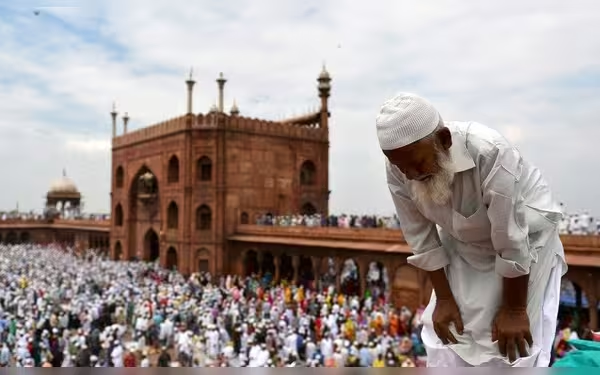Saturday, September 28, 2024 08:16 PM
Outrage Over Modi Government's Waqf Board Proposal in India
- Muslim community outraged by Waqf board power reduction.
- Proposal threatens charitable initiatives for Muslims.
- Concerns over minority rights and autonomy in India.
 Image Credits: tribune.com.pk
Image Credits: tribune.com.pkThe Modi government's proposal to strip Waqf boards of powers has sparked outrage among Muslims, raising concerns over minority rights and charitable initiatives.
The recent proposal by the Modi government in India to strip Waqf boards of their powers has sparked outrage among the Muslim community. The Waqf Act, which is a significant piece of legislation, allows Muslims to donate land and other assets for charitable purposes. This act ensures that these donations are managed with oversight from Muslim parliamentarians, religious scholars, and state bar councils. The concept of Waqf refers to the permanent dedication of movable or immovable property by an individual for purposes that are recognized under Muslim law as pious, religious, or charitable.
Waqf boards play a crucial role in managing these assets, ensuring that they are used effectively for the benefit of the community. The proposed changes by the government have raised concerns that this could lead to mismanagement and a lack of accountability. Many believe that the government’s move is an attempt to undermine the autonomy of the Muslim community and its ability to manage its own charitable resources.
Critics argue that the Waqf boards have been instrumental in providing educational and social services to the Muslim community. By taking away their powers, the government risks jeopardizing these essential services. The outrage is not just about the loss of power; it is also about the potential impact on the lives of countless individuals who rely on these charitable initiatives.
Furthermore, this proposal has ignited a broader conversation about the rights of minority communities in India. Many Muslims feel that their voices are being silenced in a country that prides itself on being a secular democracy. The fear is that this is just one of many steps that could lead to further marginalization.
The backlash against the Modi government's proposal highlights the deep-seated concerns within the Muslim community regarding their rights and autonomy. As discussions continue, it is essential for all stakeholders to engage in dialogue that respects the rights of minority communities and ensures that charitable initiatives can thrive without undue interference. The future of Waqf boards and their ability to serve the community effectively hangs in the balance, and it is a matter that deserves careful consideration and respect for the voices involved.













